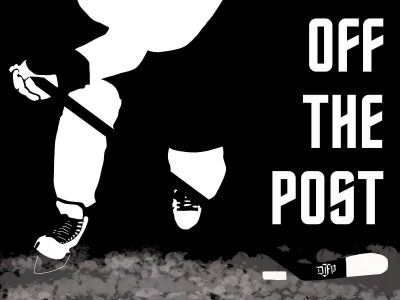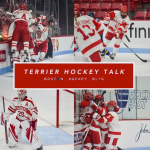The Seattle Kraken are breaking into the NHL this season sporting slick new jerseys and a jumbled roster looking for its identity. Added to the league as an expansion team, the NHL’s 32nd franchise will begin to piece together its draft picks into a winning group.
The Vegas Golden Knights made this tremendous task look easy in their inaugural 2017-18 season, forging to the Stanley Cup Finals during that first campaign and collecting two division championships since then. We have to remind ourselves that that’s not normal — but it did make a fantastic story.

The Kraken took a more conservative approach in the expansion draft than some fans may have expected. I know I was surprised when big — granted, more expensive — names like Max Domi, Vladimir Tarasenko and Ryan Johansen were left off of Seattle’s roster. It seems their general manager Ron Francis was keen on being frugal, leaving $25 million in the team’s wallet to spend before October rolls around.
Francis’ strategy begs the question, though, is the “slow and steady wins the race” mindset still viable or even productive in a modern NHL that recycles players and contracts at such a high rate?
The recent salary cap has forced teams to say goodbye to franchise players with big paychecks. Dynasty teams are far less common or conceivable because groups are inevitably headed towards a rebuild — either major or minor — every five years or so.
For the Kraken, saving money seems beneficial until Victor Hedman swallowsis swallowing all their passes at the red line, Sebastian Aho nets two in a night or Mathew Barzal drags a defenseman coast-to-coast just to top it off with a shorty. It’s a simple and perhaps sad truth of today’s game: Grit and determination aren’t enough to compete against these All-Star teams and players. Every group needs real talent.
With the lack of moves Seattle has made, it’s hard to believe they’ll be at a truly competitive level for some time, and I guess that’s the point of an expansion team. I just believe the league and team management’s outlook is now strongly guided by how they can be good. Every GM wants to squeeze some glory days out of their roster before a postseason ride literally becomes too big of a price to pay.
Playing safe with the salary cap is probably satisfying for the Kraken’s accountant, but not substantial for a sport that has transitioned to building short-term power teams. That being said, Seattle does have character and a handful of skilled guys who will likely be the main ingredients in the squad’s future victories.
Right-winger Jordan Eberle was a big part of the New York Islanders’ revival in the past four years. The veteran player garnered 33 points (16 goals, 17 assists) last season and aided the Isles in leadership in their energizing postseason run in the spring. His confidence and experience will no doubt be leaned on as lines and pairings begin to be formed.
Yanni Gourde is also headed to Seattle. Undrafted and signed by the Tampa Bay Lightning in 2014, Gourde only knows what it’s like to be on a winning team. He’s got two Stanley Cup rings — before the age of 30 — and has seen what it takes to get to the top in today’s NHL. Gourde’s scrappy and in-your-face style of play paired with unwavering talent is something I would be excited about as a Kraken fan.
Coming from the Dallas Stars and adding some strength on the backend is Jamie Oleksiak. Last season, the defenseman averaged 20:29 minutes of ice time a game and led his team with 148 hits. He’s a force to be reckoned with at the blue line and will likely act as a role model for the younger guys coming into that locker room.
Although there’s a lot of work that awaits the organization, the prospect of a new team is always exciting for any league, and I think Seattle is going to welcome the Kraken with open arms. The group clearly has the money to spend once they figure out what missing pieces they need to fill, and it’s good for the sport to expand its market.
Seattle’s first (ever) regular-season game will be in Las Vegas against the Golden Knights on Oct. 12. We’ll see how these two expansion teams face off and eventually gain a definition for what it means to play Kraken-brand hockey.













